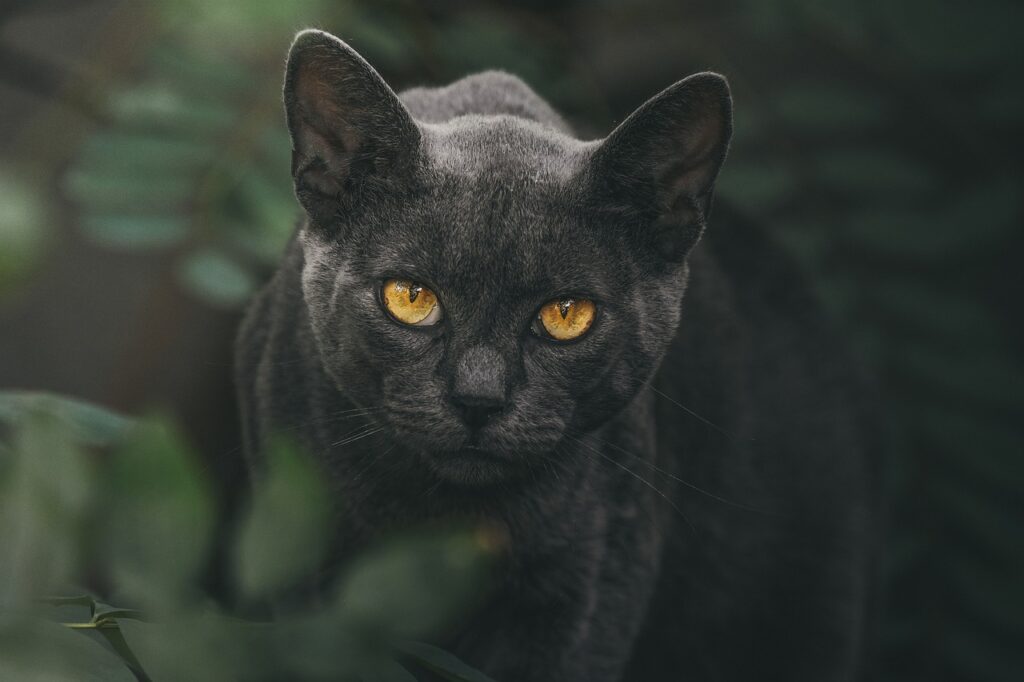Can Cats Eat Potatoes? – Yes, With Caution
Potatoes are a staple in many households, but can cats share in this food? Yes, cats can eat potatoes, but it’s important to serve them properly. Raw potatoes are a big no for these furry friends because they contain solanine, which can be toxic. Always ensure the potatoes are cooked and given in small amounts. Treats like potatoes should make up a small part of a cat’s diet, focusing on their regular, nutritionally balanced cat food.
Can Kittens Eat Potatoes?
No, kittens are still developing and need a specialized diet for growth. Their little bodies are not ready to handle potatoes or other human foods. Feeding kittens foods that aren’t part of their specialized diet can disrupt their nutritional balance, which is not good for their health. So, it’s best to stick to kitten-specific food for your tiny companion.
Things to consider when feeding potatoes to kittens?
There’s a simple guideline when it comes to kittens and potatoes: avoid it. Their digestive systems are delicate and in development, and it’s better to nourish them with high-quality kitten food that has been crafted to support their growth and health. Potatoes don’t fit this bill and therefore are not recommended for kittens.
Nutritional Benefits of Potatoes for Cats – Why Potatoes are good for Cats?
Source of Energy
Potatoes are high in carbohydrates which can provide a quick source of energy to cats. However, cats do not require high levels of carbohydrates in their diet, so potatoes should be just an occasional treat.
Vitamins and Minerals
Potatoes contain vitamins like Vitamin C and B6, as well as minerals such as potassium and magnesium, which can contribute to overall health. These vitamins help in various body functions such as the immune system and the nervous system.
Fiber for Digestion
The fiber in cooked potatoes can help in digestion. It is important to note that cats require a certain amount of fiber in their diet to help maintain good digestive health.
Antioxidants
Potatoes also have antioxidants. These can help fight off free radicals in the body, which can contribute to better health in the long term.
Low Fat
As long as they are not fried or cooked with a lot of fat, potatoes are generally low in fat. This can be a healthy treat option for cats who are on a controlled diet for weight management.
Potential Allergies: Can Cats Be Allergic to Potatoes?
Yes, though it is rare, cats can be allergic to potatoes. It’s important to start with a small amount to see how your cat reacts before making it a regular treat.
Symptoms of Potato Allergies in Cats
- Gastrointestinal upset: Look out for symptoms like vomiting or diarrhea after feeding potatoes to your cat. This could be indicative of an allergy or intolerance.
- Skin irritation: Allergies can also show up as skin issues. Watch for excessive itching or any changes in the skin or coat.
- Respiratory issues: Though less common, some cats can exhibit respiratory symptoms such as sneezing or coughing if they are allergic to certain foods.
What to Do If Your Cat Shows Symptoms?
- Contact Veterinarian: If you notice any signs of allergy, the safest step is to reach out to your vet for proper advice and treatment.
- Elimination Diet: With your vet’s guidance, they may recommend an elimination diet to identify the allergen causing the issues.
- Immediate Withdrawal: Stop feeding your cat potatoes immediately if they show any allergic reactions and consult a vet for next steps.
Recommended Amount: How Much Potatoes Can a Cat Consume?
Potatoes should only be given in small amounts to your cat, as an occasional treat, not as a staple in their diet. Due to their high carbohydrate content and potential for solanine toxicity, it’s best to limit a cat’s potato intake to a few small cooked pieces infrequently, and always without the skin.
Things to Consider When Feeding Potatoes to Cats
Always serve cooked and unseasoned potatoes. Avoid raw potatoes, as well as those prepared with butter, salt, garlic, onions, or any other additives that can be harmful to cats. Serving size is also crucial; too much can lead to obesity or nutritional imbalances.
How to Feed Potatoes to Cats: A Quick Guide
Offering a morsel of cooked potato to your cat can be a nice treat. Whether it’s boiled or baked, make sure it’s plain and free from any added seasoning or toppings that can be harmful to your cat.
Mashed Potato Surprise
Give your cat a small spoonful of plain mashed potatoes, ensuring it’s cool and entirely free from added ingredients often found in human servings.
Baked Potato Cubes
After baking a potato, let it cool and cut a small piece into tiny, bite-sized cubes as a snack for your cat. This should be plain, as seasonings and toppings that are safe for humans might not be safe for feline consumption.
Boiled Potato Bits
Boil some potato pieces until they are soft. After cooling, offer one or two small pieces to your cat. Remember, no seasoning or additives should be present.
Conclusion
In conclusion, cats can eat potatoes in very small amounts and only if they are cooked properly and served plain. It’s important to introduce any new foods, like potatoes, into your cat’s diet gradually and to observe for any adverse reactions. Though potatoes can offer some nutritional benefits, they are not an essential part of a cat’s diet and should only be a small, occasional treat. Always prioritize high-quality cat food that meets all of your pet’s nutritional needs.



